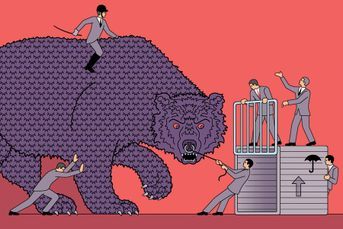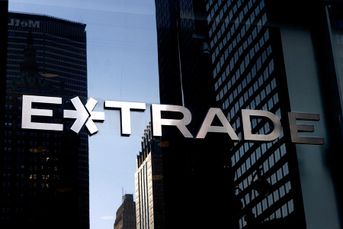Value funds could wake from long slumber
Growth has outperformed value in recent decades, but higher rates and more normal volatility levels could give value investments a boost.
The death of value investing has been greatly exaggerated, fund managers say, and an eye for cheap stocks will be vindicated once again.
The drought for value investors has been epic: Large-company growth funds have gained an average 9.23% a year for the past 30 years, while large-company value funds have gained 9.01% a year. From today’s perspective, growth has topped value over the past 25, 20, 15, 10 and five years, as well.
Much of that streak has come in the past decade: Value funds clobbered growth funds from 2000 through 2010, as the tech bubble popped and growth managers looked like village idiots.
Since the bottom of the 2007-2009 bear market, however, growth stocks like Facebook, Amazon, Netflix and Google have soared, valuations be damned. “It’s been a challenging period for an extended period of time for value managers,” said Peter Langerman, CEO of the Franklin Mutual Series.
But that time could be passing soon, Mr. Langerman argued. A more normal level of volatility and higher interest rates means that there should be more of an equilibrium between growth and value investment styles.
“I’m not suggesting it’s the internet bubble again, but we have gone through a long period of artificial economic conditions that have diminished the value-add of doing fundamental work,” he said.
Despite relatively high overall market multiples, there are still good stock values, Mr. Langerman said. Consider the health care sector, where stocks like medical device maker Medtronic and big pharmaceutical company Merck remain relatively cheap.
“They are not the Facebooks and Amazons of the world, and there are not a lot of people talking about them, but they’re very attractively priced and somewhat overlooked,” he said.
In the case of Merck, investors are overlooking its large animal health division. “It’s very valuable and under-recognized,” Mr. Landerman said. “We like innovation — we just don’t like to pay up for it.”
And, as with growth investors, value investors can sometimes be their own worst enemies, pouring too much money into what are perceived as undervalued sectors and regions, argues Mike Hunstad, head of quantitative strategies at Northern Trust Asset Management.
“For example, when commodity prices were falling a few years ago, energy stocks looked very attractive from a valuation point of view,” Mr. Hunstad said. “A lot of value funds had a huge overweight in energy.” Unfortunately, energy prices — and the stocks of energy companies — fell harder than anyone expected.
Similarly, value funds piled into United Kingdom stocks in the wake of the Brexit vote, putting outsized bets on a region because of political news. When you separate out the human errors of over- or under-enthusiasm from pure value factors, such as price-to-book ratios, Mr. Hunstad argues, value investing doesn’t look so bad.
Finally, there’s the notion that no investment style has an infinite period of underperformance. Growth and momentum styles lagged after the dot-com bubble, and so they will again.
“A handful of stocks in the tech sector are defining performance now, just as Netscape and eBay did during the internet bubble,” Mr. Hunstad said.
Mr. Langerman isn’t betting on disaster for the big techs, but he’s thinking a reversion to the mean is in order.
“It’s been a bit too easy to make money by just owning the market,” he said. “Thing tend to revert to the mean. We know what we own, and we like what we own. Also, we know what we don’t own and some of that is pretty rich.”
Learn more about reprints and licensing for this article.








